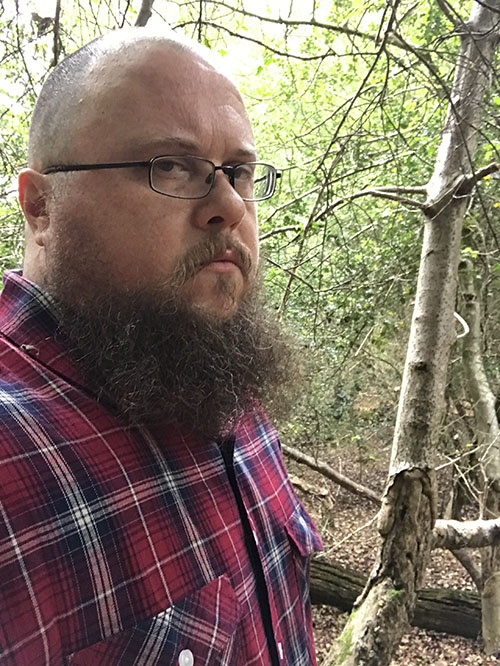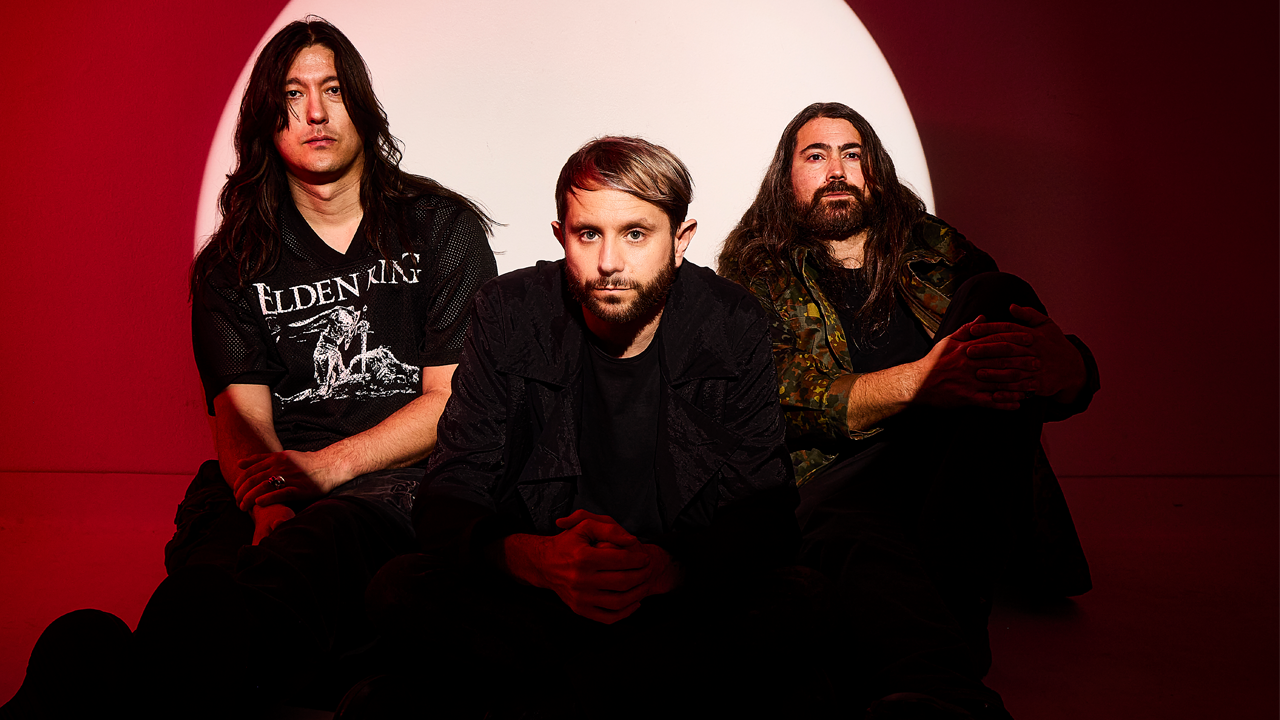10 obscure doom bands that should be huge
A deep dive on 30 years of doom history to winkle out the hidden gems

In many ways it's a moot concept, identifying the unheralded doom metal bands who deserve better than they got. Groups like Pentagram, Trouble, Solitude Aeturnus, While Heaven Wept, Skepticism, Winter, Warning and Yob may be much-loved genre legends to those in the know, but outside of cult underground circles their names may elicit blank looks. Black Sabbath may be one of the biggest rock bands of all time, but the solemn, sinister, slow'n'low subgenre that gradually emerged in their wake and image has always been a niche movement, glumly trudging along while thrash, death and black metallic forms raced to glory. So, which are the greatest bands to be overlooked even by more clued-up doom-hounds? We did a deep dive on 30 years of doom history to winkle out the hidden gems.

Sevenchurch
The UK doom scene was still in its infancy when these enigmatic Oxonians released their Nefarious demo in 1992, a towering monolith of quirky pastoral doom that straightaway sounded like nobody else. With Dave Smart's downcast, wrought-iron riffing and the deep monastic intonations of Martin Spear, Sevenchurch presaged the solemn 'true doom' classicism of Reverend Bizarre on 1993's excellent Bleak Insight LP (released via infamous German label Noise Records, with a 90s-as-hell purple-and-green colour scheme). Sadly, the band fell apart soon after, but archive material released in 2013 confirmed Sevenchurch as a thrillingly distinctive entity, extinguished way too soon.
Celestial Season
These Dutchmen and women were among the spearhead of European bands assimilating British gothic death/doom innovations circa 1992-94, taking the gloom of early Paradise Lost and My Dying Bride to a quirkier, more flamboyant place. 1995's Solar Lovers caught the septet bewitchingly equidistant between grief and groove before 1997's Orange fully embraced stoner-psych desert rock, accusations of bandwagon-jumping rendered redundant by their sheer class and quality of output, regardless of genre. After splitting up in 2001, CS reformed 10 years later before finally releasing comeback LP The Secret Teachings in 2020, a full-blooded return to gothic doom splendour.
Scald
Melding Manowar, Bathory and Candlemass to create the ultimate expression of epic metal, these Viking-obsessed Russians launched in phenomenal style with 1997’s triumphant, impassioned debut Will Of Gods Is A Great Power. Tragically however, frontman and band mastermind Maxim ‘Agyl’ Andrianov – whose powerful, expressive vocals were Scald’s greatest trump card – died in a railway accident shortly after the LP’s release. That’s where Scald’s story ended – until February 2021, when remaining original members reunited to release a new EP with Chilean singer Felipe Plaza (from Procession, Nifelheim and Deströyer 666), and hopefully to experience some long overdue kudos.
Eternal Elysium
Celebrating their 30th anniversary in 2021, these Japanese stalwarts have an instinctive talent for big fat woofer-blowing stoner doom riffs that send heads spinning with coloured lights and smoky smells. They’re equally propelled by a streak of musical mischief and eccentric experimental impulse; witness their savvy choice of Iron Maiden cover, Innocent Exile, rendered in bowel-quaking doom style but incorporating bits of dub-reggae and jazz to nonplus the rivet-heads. EE continued obeying their own hazy muse through six albums plus several splits and EPs, and although they’ve been ominously quiet since 2016, these lifers will surely return to Earth soon.
Virgin Black
It’s perhaps counterintuitive that the band who deliver dark, symphonic, romantic gothic doom with the most full-throttle commitment and conviction hail from sunny Australia. All the best Aussie doomsters deserve better than they get, but VB’s music is so profoundly wrought, compositionally intricate and emotionally devastating, it seems tragic for them to spend 25 years (give or take a decade-long hiatus) languishing as prophets without honour, pushing themselves “tens of thousands of dollars” into debt getting their music to match the grandiloquent scale of their ambitions. After a three-part requiem mass, where this eccentric duo go next is anyone’s guess.
Ododruin
Appropriately taking their name from the volcano in northwest Mordor, aka Mount Doom, Rochester NY's Orodruin got off to a flying start in the early millennium with a clutch of promising demos, a highly sought-after split with Reverend Bizarre and a majestic debut LP, Epicurean Mass. It took 16 years for them to follow up that killer disc, but thankfully the reactivated band haven't skipped a beat in the interim. Stellar 2019 comeback platter Ruins Of Eternity emphasised doom's 70s roots, upping the tempo and smoothing out some rough edges, while maintaining their knack for striking a rich atmosphere.
Sign up below to get the latest from Metal Hammer, plus exclusive special offers, direct to your inbox!
Dantesco
Bravura barbarian power doom from Puerto Rico, distinguished by the extraordinary basso warble of operatic dynamo Erico 'La Bestia' Morales, wrapping his multi-tracked vibrato around metal-as-fuck mystical fantasy lyrics, singing mostly in Spanish but tangibly brimming with conviction and drama. But it’s not a one-man show; Joe Carrasquillo and Dennis Torres’ guitars form a sturdy base, from snappy crunch riffs to elegant, ornate harmonies to wah-wah solo madness. Tragically, Erico died in March 2021 after a heart attack, shortly after the release of Dantesco's sixth rugged and epic LP El Día Que Murieron Los Dioses (The Day The Gods Died).
SubRosa
It came as quite a shock when this unorthodox five-piece from Salt Lake City announced their split in 2019; it always hurts more when we lose a band who made us feel. The ex-bandmates have fled to disparate endeavours, but SubRosa's chemistry bore such radiant results - especially with the beguiling twin-violin set-up, growing in sophistication and confidence until a mesmerising final LP in 2016 - that it couldn't help feeling like a band cut off in their prime. Nevertheless, SubRosa gifted us four profoundly atmospheric, haunting records, and the door to a future reunion was left tantalisingly open...
The Flight Of Sleipnir
Although this Colorado quartet’s intense, windswept music is suffused in the essence of doom, there’s a free-thinking versatility to their tempestuous sound that resists easy classification; the result is so richly immersive you can smell the damp conifers. There’s a deep rustic folk core running through TFOS’s prolific output, deployed with a progressive expanse, sprinkled with psych and post-rock touches, and shot through with harsh black metal instincts. These extend to a conceptual obsession with Norse myth, a theme so important that on their Facebook bio they dub themselves “A musical interpretation of the writings of poets long since gone.”
Bismuth
Distinguished by the versatile vocals, compositional nous and gut-wrenching bass tones of compelling frontwoman Tanya Byrne, this Nottingham drone duo may only be two albums (and multiple splits) into their career, but their instinctive, affecting blend of glacial beauty and apocalyptic weight is already nailed. Suitably named after an extremely heavy metal – bismuth has a half-life of twenty billion billion years – the oddly-matched pair make for a monstrously crushing live spectacle. 2018 LP The Slow Dying Of The Great Barrier Reef focused on Earth’s imminent climate catastrophe, and you’d be hard pushed to find a more apt soundtrack for it.
Chris has been writing about heavy metal since 2000, specialising in true/cult/epic/power/trad/NWOBHM and doom metal at now-defunct extreme music magazine Terrorizer. Since joining the Metal Hammer famileh in 2010 he developed a parallel career in kids' TV, winning a Writer's Guild of Great Britain Award for BBC1 series Little Howard's Big Question as well as writing episodes of Danger Mouse, Horrible Histories, Dennis & Gnasher Unleashed and The Furchester Hotel. His hobbies include drumming (slowly), exploring ancient woodland and watching ancient sitcoms.

